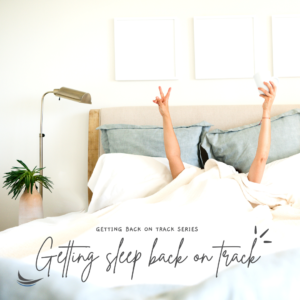 With the summer soon coming to an end, so comes a shift in schedules for many including students, educators, and those whose day-to-day routine will be changing.
With the summer soon coming to an end, so comes a shift in schedules for many including students, educators, and those whose day-to-day routine will be changing.
You may find yourself having less time for leisure activities with increased demands in responsibilities.
It can be tempting to stay up late to get everything done–staying up late to respond to emails, do schoolwork, or scroll through social media. You may find yourself finishing off the night with a heavy meal and an alcoholic beverage or two, only to find yourself hitting the snooze button and feeling groggy in the morning.
The following strategies can be used to help get sleep back on track.
Create a Consistent Sleep/ Wake Schedule
Now is the time to work towards gradual adjustments in moving towards a consistent daily sleep/ wake schedule. Since it is important to get enough sleep, knowing how much sleep your body may need by using a sleep-calculator can assist as you take some initial steps to-fix-your sleep-schedule. For most adults (ages 18-60), at least 7 hours of sleep per night is recommended. For teens ages 13-17 recommended hours is 8-10 and for school-aged children ages 6-12 recommended hours of sleep per night is 9-12.
Balance Exposure to Light and Darkness
Changes in the amount of daily sunlight exposure appears to trigger seasonal-affective-disorder. This can negatively impact one’s “biological clock” which controls sleep-wake patterns and affects mood. Being available for daytime physical activity and exposure to the sun during the day can assist with getting Vitamin-D.
Exposure to darkness prompts production of melatonin, a hormone that helps regulate circadian rhythm. Melatonin is a hormone that is important in maintaining a regular sleep-wake schedule. While this hormone is produced in the body, some people may benefit from melatonin supplements. Sleeping in a quiet, dark room free from lights and screens that emit blue light is recommended as these can interfere with your body’s circadian rhythm.
Remove Distractions
If you have a TV or gaming system in your bedroom, these can be huge distractions to sleep! Home offices in your sleep space or cell phone by a nightstand are also distractions. It is recommended to put away all electronic devices at least 30 minutes before bedtime. Separating your sleep space from a work/ school responsibilities is also beneficial.
Manage Stressors
Worrying about not getting enough sleep, replaying events in your mind, running through a mental checklist of things to do, thinking about all the things you should have done, etc …these are just a small handful of the thoughts that may keep you from restful sleep. If you are struggling with getting a good night’s sleep, consider the benefits of meditation. Meditation that focuses on sleep helps one be present in the moment. Meditation that uses mindfulness-for-sleep can help create a calm state, by clearing the mind in preparation for sleep.
Create Good Sleep Hygiene
Focusing on improving sleep hygiene can help create habits within your environment and routines that foster good sleep. Create a sleep routine that incorporates self-care and promotes restful sleep. A warm cup of tea, a relaxing bath before bed, essential oils, using black-out curtains, having a supportive mattress & pillow, and having a cooler room temperature are strategies that can help. In addition, choosing lighter meals in the evening, avoiding use of caffeine or other stimulants, and reducing or avoiding alcohol are additional strategies that can help get your sleep back on track.
Since there are underlying medical and mental health concerns that can contribute to chronic difficulties with sleep, talking with your doctor and/ or mental health provider can help. For some people, a referral to a sleep specialist may be needed. For others, therapy, medication, or a combination of both may be helpful.
Written By : Charlotte Johnson, MA, LPCC
We’re Here to help
Our wellness experts will be happy to take care of you. You can CLICK HERE to schedule an appointment now or call (612)223-8898.
Meet Clinicians
We’re united by our commitment to providing effective, relevant, and innovative mental health support at all stages of your journey. Click Here to find out more about who we are, where we come from, and how we live out CARE’s mission every day.
The professionals at CARE are actively collecting and creating resources to help with what you need. We’re Here for You.



